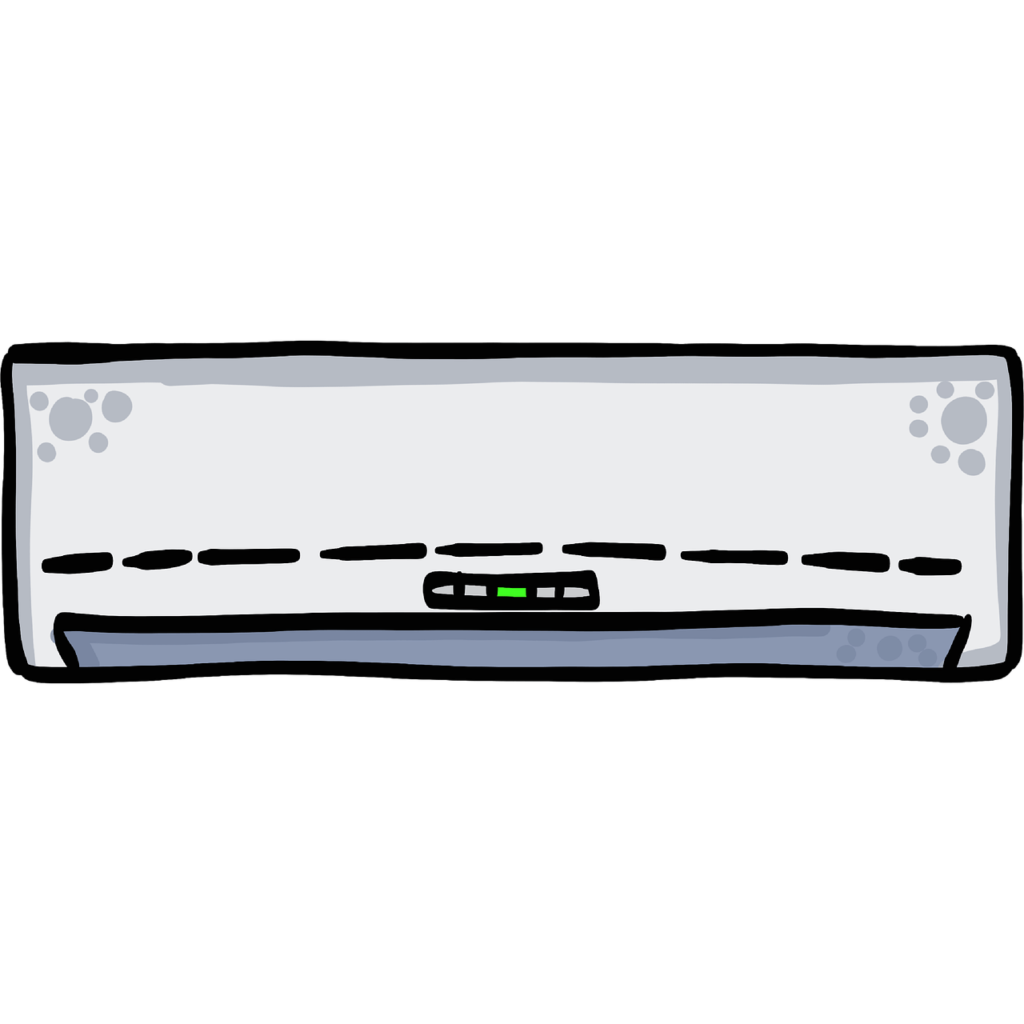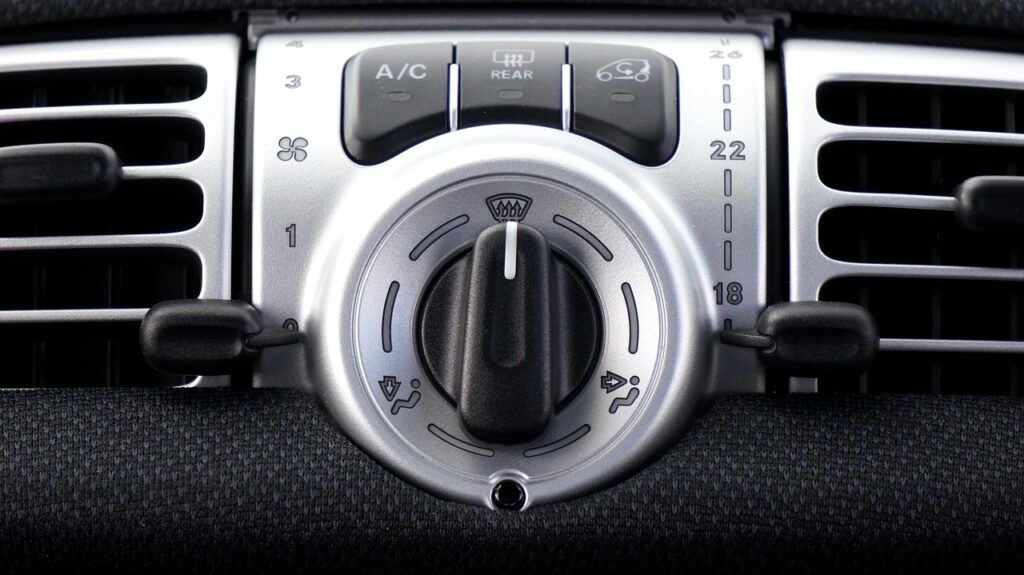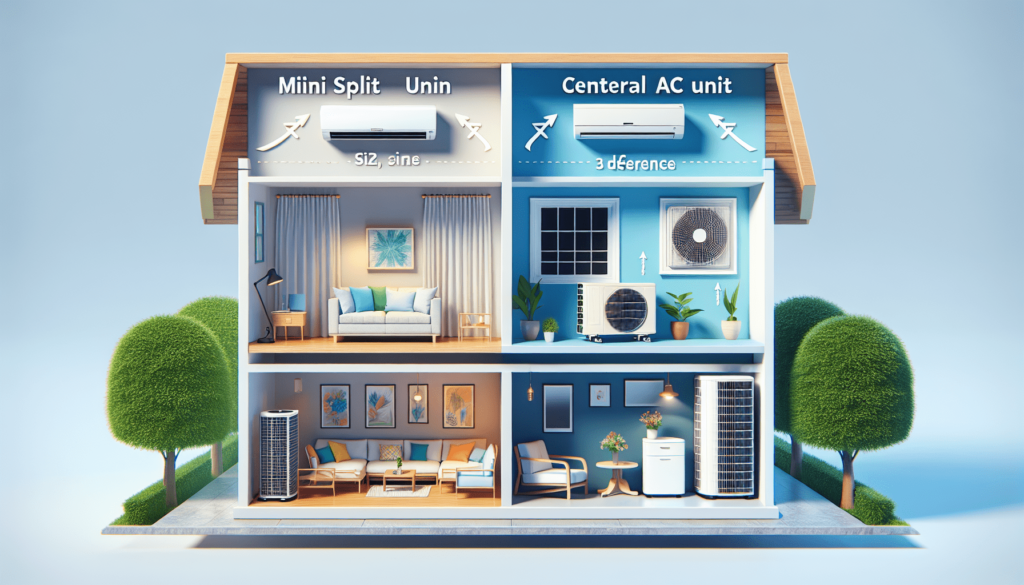Ready to upgrade your home’s cooling system but not sure whether to go with a mini split or central AC? This article will help you weigh the pros and cons of each option to determine which is the best fit for your home. From efficiency and cost to installation and maintenance, we’ll guide you through the key factors to consider when making this important decision. Whether you prioritize flexibility and zoning control or overall cooling power, we’ve got you covered. Read on to find out which option will keep you cool and comfortable all season long. Have you been struggling to decide between a mini split and central AC for your home? With so many options available, it can be overwhelming to choose the right cooling system for your needs. In this article, we will break down the differences between mini split and central AC units to help you make an informed decision.
Understanding Mini Split Systems
If you’re looking for a versatile and energy-efficient cooling solution, a mini split system might be the right choice for you. These units are composed of two main components: an outdoor compressor unit and one or more indoor air-handling units. They are connected by a conduit that houses the power cable, refrigerant tubing, suction tubing, and a condensate drain.
Mini split systems are ideal for homes where ductwork installation is not possible or desired. They offer zoned cooling, allowing you to set different temperatures in various rooms or zones of your home. This can help improve energy efficiency and lower your utility bills.
Advantages of Mini Split Systems
Mini split systems offer several advantages over central AC units:
- Zoned cooling: You can cool only the rooms you are using, saving energy and money.
- Quiet operation: The compressor unit is located outdoors, reducing noise inside your home.
- Easy installation: Since no ductwork is required, installation is typically faster and less invasive.
- Energy efficiency: Mini split systems are known for their high energy efficiency ratings, saving you money on operating costs.
Disadvantages of Mini Split Systems
While mini split systems have many benefits, there are some drawbacks to consider:
- Upfront cost: Mini split systems can be more expensive to purchase and install than central AC units.
- Aesthetics: The indoor air-handling units can be bulky and may not blend seamlessly with your home decor.
- Maintenance: Regular maintenance is required to ensure optimal performance and efficiency.

This image is property of pixabay.com.
Understanding Central AC Systems
Central AC systems are the more traditional cooling solution found in many homes. They consist of a single outdoor unit that houses the compressor and condenser, along with an indoor unit that contains the evaporator coil and blower. Ductwork is used to distribute cooled air throughout your home.
Central AC systems are popular for their ability to provide consistent cooling throughout your entire home. They are often recommended for larger homes with multiple rooms that need to be cooled at the same time.
Advantages of Central AC Systems
Central AC systems offer several advantages over mini split systems:
- Whole-home cooling: Central AC systems provide consistent cooling throughout your entire home.
- Cost-effective: Central AC units are typically more affordable upfront compared to mini split systems.
- Aesthetics: Since the system is centralized, there are no bulky indoor units taking up space in each room.
- Filtered air: Central AC systems can improve indoor air quality by filtering out dust, allergens, and other pollutants.
Disadvantages of Central AC Systems
Despite their benefits, central AC systems have some downsides:
- Ductwork required: If your home does not have existing ductwork, installation can be costly and invasive.
- Energy efficiency: Central AC systems can be less energy-efficient compared to mini split systems, leading to higher operating costs.
- Limited control: With central AC, you cannot set different temperatures in different rooms, which may lead to wasted energy.

This image is property of pixabay.com.
How to Choose the Right System for Your Home
When deciding between a mini split and central AC system, there are several factors to consider. Here are some questions to ask yourself to help you make the right choice:
- Do you have existing ductwork in your home? If not, a mini split system may be the more practical option.
- How many rooms do you need to cool? If you only need to cool a few rooms, a mini split system with zoned cooling may be more cost-effective.
- How important is energy efficiency to you? If you are looking to reduce your energy consumption and lower your utility bills, a mini split system is the better choice.
- What is your budget for upfront costs and ongoing maintenance? Consider the initial investment and long-term operating costs of each system.
- Do you value aesthetics and prefer a clean, streamlined look in your home? Central AC systems may be more appealing if you want to avoid bulky indoor units.

This image is property of pixabay.com.
Conclusion
Ultimately, the decision between a mini split and central AC system will depend on your unique needs and preferences. Both options have their advantages and disadvantages, so it’s essential to weigh the pros and cons carefully before making a choice. Whether you prioritize energy efficiency, zoned cooling, or whole-home comfort, there is a cooling system that will suit your home. Take the time to research and consult with HVAC professionals to determine which system is right for you.


